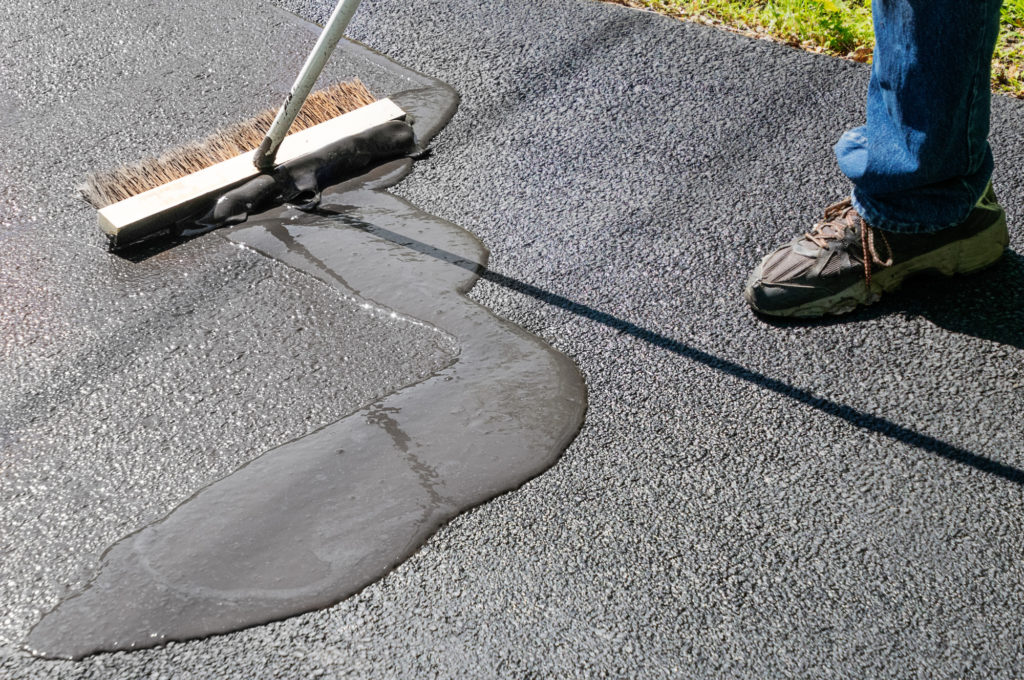What’s the Difference Between Asphalt Milling and Resurfacing?
Keeping your asphalt parking lot or driveway smooth requires knowing what process can help. Here is the difference between asphalt milling and resurfacing.
Asphalt milling and asphalt resurfacing keep the world moving and businesses running. Often, people take for granted exactly what that means.
According to the National Asphalt Pavement Association, or NAPA, the United States has approximately 3,500 asphalt production sites. These sites produce about 350 million metric tons of asphalt annually.
Basically, that’s a lot of asphalt and a lot of work to keep our roads, driveways, and parking lots working the way they should.
If you have driveways or parking lots for your commercial property that are causing you and others around you concern, you need to learn more about asphalt milling and asphalt resurfacing. It is vital to understand how and why they can do the job while reducing downtime for the property.
If you are seeking the road to repair, keep reading. We shed some light on how to keep your business running.
How Asphalt Milling Works
When thinking about asphalt pavement restoration, an affordable solution can be asphalt milling. It is often an alternative for total demolition and repaving, as it is cheaper.
In this process, it will grind up the asphalt surface. This can be a couple of inches or a total depth of removal. The result is a smooth, even surface.
Asphalt milling includes a cold milling machine driven by a human. It digs up the existing asphalt surface. The device has rows of metal cutting teeth.
On a large drum that rotates the cutting, the teeth mount diagonally. The asphalt passes through a machine’s grinder that crushes it.
Asphalt Milling vs. Resurfacing
Essentially, asphalt millings are asphalt that is crushed. Since you are using a recycled product, people know millings as environmentally friendly for paving material.
Asphalt resurfacing first removes the top layer of the existing asphalt and then replaces the surface. This is typically between one to two inches in thickness.
Asphalt parking lots and driveways become damaged from wear and tear. Unfortunately, cracks in asphalt happen.
Sealcoating can be preventative maintenance that provides a patch for the issue. If you want to correct the damage, particularly if you notice potholes and pooling water, you are better off resurfacing than seal coating.
Benefits of Asphalt Resurfacing
Asphalt is typically the material of choice for many commercial property owners for their parking lots and driveways. That is because of its many benefits, like:
- Durability
- Flexibility
- Water-resistance
- Minimal maintenance
With constant use, asphalt will still get worn, and the effects are depressions and cracks in asphalt. That is why parking lots and driveways need resurfacing.
Safety
Cracks and depressions in an asphalt driveway or parking lot can lead to injuries. Covering cracks in the asphalt and filling in depressions by resurfacing helps keep the property (and the people on it) safe.
Aesthetics
A significant value of asphalt resurfacing for commercial property owners is that it looks brand new. Constant use and fading from sun exposure can hurt the aesthetic value. Asphalt milling and resurfacing rejuvenate the appearance of a driveway or parking lot.
Extends the Life
Owning a commercial property comes with a responsibility to maintain it. On its own, an asphalt driveway can last approximately 30 years.
Proper milling and resurfacing contribute to a longer life span. It will extend the lifespan of the road or parking lot to eight to fifteen years. Without it, all that will happen is more cracks and continued deterioration, unfortunately.
Prevents Over-Sealing
Applying seal-coating as a protective topcoat to asphalt is okay if you do not do it too often. Too much sealing can lead to extensive cracking.
Resurfacing is the perfect alternative to sealing. You can apply a new asphalt layer that, in the future, can be sealed for extra protection.
Less Downtime
Replacing the asphalt of a parking lot or driveway takes a long time, which means that it will be unavailable to the public for a longer duration than it would if you chose to resurface.
Faster completion equals less downtime. This can be critical as it relates to your revenue.
Save Time and Money
It is essential to resurface at the right time. When you do, you avoid cracks and depressions, which lead to more deterioration.
Ultimately, this will all lead to a higher price than the cost to fix it. Asphalt milling and resurfacing is a way to lower the cost overall to repair your parking lots and driveway while also allowing them to have a longer life span.
Requirements
If you think that asphalt milling and resurfacing is the right solution for you, there are a few requirements you need to consider. One condition is that up to 30% of the pavement needs a repair. Surfacing will not be a practical solution if you have over 30% in need of repair.
You want the foundation to be structurally sound. Plus, it should be under 20 years old. Cracks in asphalt should not be wider than one-quarter of an inch.
The cracks should be shallow, too. If they are bigger, that could mean that you have problems that need more repair than just asphalt resurfacing.
Dixon Paving and Milling: An Introduction
If your commercial asphalt parking lot or driveway needs repair, we can help. Dixon Paving & Milling Inc. is a well-established paving company serving the southeastern United States, including North Carolina, South Carolina, Virginia, and Georgia.
We pride ourselves on providing services with lasting results. Asphalt milling and asphalt resurfacing will benefit your property in more ways than one.
Are you ready to take on a new project? Contact us today to discuss the paving needs for your commercial property.

